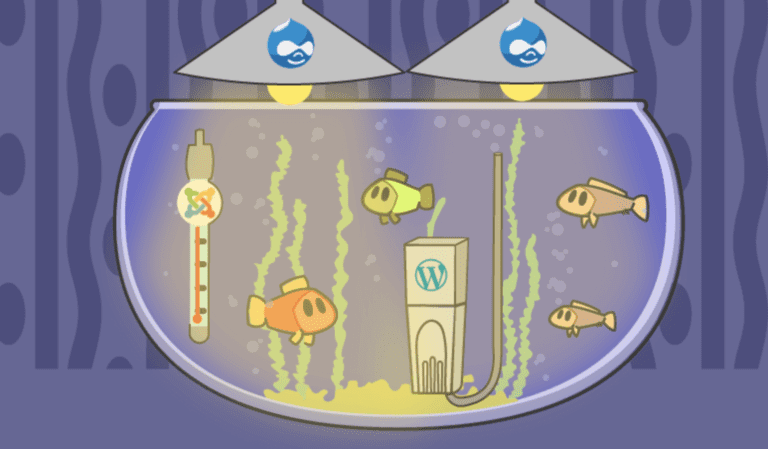Self web hosting may be an attractive option for individuals and businesses who want full control of their website. However, this choice has its drawbacks. One major one is the technical expertise required. Hosting your own site involves tasks like server setup, maintenance and security measures. Without proper knowledge, these can be daunting and time-consuming.
Plus, self web hosting usually requires a hefty investment in hardware and software. Buying servers, networking equipment and other needed tools can cost a lot. Also, there are ongoing charges for electricity, internet connectivity and IT support. For small businesses or those on a tight budget, these costs may outweigh the advantages of self hosting.
Another disadvantage of self web hosting is the risk of downtime. It’s your responsibility to keep the site available all the time. Any technical issues or power outages can make the site inaccessible to visitors. This can damage your online reputation and cause you to miss business opportunities.
To illustrate the consequences of self web hosting gone wrong, think of Sarah. She chose to host her own website to save money. But, she lacked the technical skills. Consequently, her site was often down and vulnerable to security breaches. Unhappy customers stopped using her business, resulting in a big loss in sales.
What is self web hosting?
Self web hosting is when you host a website on your own server, instead of a third-party hosting service. It gives people and businesses full control over their website. However, it has drawbacks.
Technical skills are needed. You have to be able to maintain the server and fix any issues. This could take time and money, especially for individuals or small businesses without an IT team.
Also, it may not be as reliable as professional hosting services. They have systems in place to keep the website running. If you self host and have a hardware failure or power outage, your website will be inaccessible until you get it fixed.
Moreover, self hosting has limited bandwidth and storage capacity. As your website gets more visitors, you may need to buy more resources or upgrade the server. If not, your website may have poor performance or crash.
Finally, you are solely responsible for the security of your website. As cyber threats get more sophisticated, you need to make sure your website is safe from hacking or data breaches.
In conclusion, self web hosting offers flexibility and control, but it needs technical knowledge, is less reliable than professional services, has limited resources, may have poor performance, and lacks security measures. According to Tech Radar, software updates are essential when self web hosting.
Advantages of self web hosting
Self web hosting is a great choice for those who want control and customization of their online presence. It offers many advantages, such as:
- Customizability – customize your website with templates, themes and features.
- Cost-Effectiveness – save money by hosting your website on your own server.
- Optimized Performance – optimize bandwidth, speed and security for your site.
- Data Security – take proactive steps to protect your data.
Plus, self web hosting provides easy scalability and advanced functionalities. It grants you full administrative access and guarantees privacy.
Disadvantages of self web hosting
Self web hosting has various drawbacks for those wanting an online presence. These can impede website performance and user experience, so other options should be considered.
1. Self web hosting necessitates technical skill and knowledge. Setting up and keeping servers, site security, and rectifying technical problems can be hard, needing expertise. Without the right skills, troubleshooting and optimizing website function can be difficult.
2. Professional hosting services usually have more reliability and speed than self hosting. Websites on personal servers may have frequent downtime, affecting user experience and potential business prospects. Also, slow loading speeds can drive away visitors.
Scalability can be restricted with self web hosting. If websites become more popular and get more traffic, self-hosted solutions may struggle. This can cause slower page load times or website crashes, harming user experience and business.
Security worries are a great risk with self hosting. Without strong security measures, such as firewalls or intrusion detection systems provided by professional hosts, websites can be vulnerable to cyber threats like hacking or data breaches. This puts user data at risk and damages trust in the website.
Self hosting may look cost-effective initially, but these disadvantages demonstrate why investing in reliable professional hosting services is important. Doing this can guarantee an optimal online presence with excellent performance, scalability, and security.
As an example of why professional hosting is better than self hosting, the social media platform Instagram once had continual service disruptions due to relying on its own servers. It changed to Amazon Web Services (AWS) managed cloud services to surmount these issues and improve user experience considerably.
Conclusion
Self hosting can seem attractive, but there are potential downsides. Without expert help, technical issues can be hard to fix. Plus, it takes time and effort for server maintenance and security updates.
Also, self hosting limits scalability and flexibility due to the local server’s capabilities, resulting in slow loading times and poor user experience. Professional hosting provides access to strong infrastructure and support, allowing for easy scaling.
Managed hosting services are one option. Professionals take care of maintenance and security updates, minimizing downtime and improving performance. Plus, they offer scalability to manage increasing traffic.
A second solution is cloud hosting. This uses remote servers with flexible resource allocation. Cloud hosting eliminates physical server limits, providing automatic backups, better security, and faster websites.
Finally, businesses can outsource hosting if they lack resources or expertise. A reliable provider can help with infrastructure, tech support, and security updates while businesses focus on core activities.
Frequently Asked Questions
Q: What are the disadvantages of self web hosting?
A: Some of the disadvantages of self web hosting include the need for technical expertise, constant maintenance and updates, potential security risks, limited resources, and potential downtime.
Q: Do I need technical knowledge to self-host my website?
A: Yes, self web hosting requires a certain level of technical knowledge. You need to be able to set up and configure the server, manage software installations, and troubleshoot any issues that may arise.
Q: How much time and effort does self web hosting require?
A: Self web hosting can be time-consuming and requires ongoing effort. You’ll need to spend time setting up the server, regularly update and maintain the software, and be available to address any technical issues that may occur.
Q: Are there any security risks associated with self web hosting?
A: Yes, self web hosting can pose security risks. If you’re not knowledgeable about security practices, your website could be vulnerable to hacking attempts or malware infections. It’s essential to stay updated with security patches and implement necessary security measures.
Q: What limitations are there with self web hosting?
A: Self web hosting often comes with limitations, such as limited server resources, bandwidth, and storage capacity. Depending on the server hardware, you might face scalability challenges as your website grows and attracts more traffic.
Q: Can self web hosting cause downtime for my website?
A: Yes, self web hosting can potentially lead to downtime. If your server experiences technical issues or power outages, your website may become inaccessible. It is crucial to have a backup plan and be prepared to handle such situations swiftly.

